
Did you catch the Channel 9 TV series earlier this year, Australia’s Most Identical?
Thank you to the 100 sets of twins, many of whom were TRA members, who participated – you were all wonderful ambassadors for twin research. The series also featured TRA’s Deputy Director, Professor Jeff Craig, who explained TRA became involved to raise awareness of the huge contribution made by twins and twin research to improving the health of all Australians.
The twins, through a series of tests, who secured the title were Perth teachers, Yvette Moran and Linda Males. They are long-time members of TRA and they share some insights into the series, their twin bond and research participation in this special interview with us below.
YOUR TWIN EXPERIENCES
How would you describe your experience of being a twin? Have you always shared a close bond?
We’ve always had a strong bond and never had to worry about being lonely. School was a little weird for others but not for us as we had each other – no sitting on our own. We did everything together. Only had a few friends as other kids would often not tolerate both of us or only liked one of us. So that meant only those who accepted both would be our best friends.
Growing up we had to wear the same clothes until we were 11 and when 13 came it was hard to determine our newfound identity with fashion. We pretty much wore the same stuff but different colours.
I think when you spend so much time together you know one another so well. We now live very close about 10 mins away from each other and Linda usually pops in after work as she needs to drive by my suburb as she heads home.
Have you always been considered ‘very identical’?
As children we would work in our parents’ grocery shop and would always confuse the customers. Aunties, Uncles, Mum and Dad would always mix us up. It was something we became use to. Teachers confused us in primary school, but we were separated in grade 3. Not sure that was a good thing, but it made it easier for them.
Many times as a young person each of us would be somewhere without the other and someone would say ‘hi, haven’t seen you for ages’ and then start a full-blown conversation. Then you would have to say you didn’t know them because it’s your twin they know. This still happens today even though we have changed a little. The good old environment has done that.
One of the biggest challenges that you’ve faced is that Yvette survived both breast and bowel cancer while Linda remained cancer free. What was that like as twins?
Cancer was an interesting time but as twins I think we never thought we were going to lose each other. It certainly made us even closer. If Linda had not hounded me to have a colonoscopy I would not be here today as I had no symptoms for bowel cancer. I think the disease was harder for her and not me as you get plenty of support when you are sick.
I always wonder why I got sick and not her, but I know after reading an article that Jeff (TRA Deputy Director Jeff Craig) sent me that both good old nurture and nature have a huge part to play.
HOW WAS THE CHANNEL 9 TV SERIES?
Did you enjoy participating in the series?
The show was fabulous. It gave us the opportunity to be on the other side of being a twin and ask the other twins what they get asked. It was really cool being ‘the normal’, rather than the odd two out so to speak. We hope the show highlighted the importance of the research we as twins can help with.
Did you think you had a good chance of winning given how similar you were?
It felt weird to be competing to be the ‘most identical’ as we were all identical scientifically, but I think the public learnt that there is more to being identical. I thought we would have a good chance of winning because of our age and how much time we spend together. Every twin there spent so much time with their twin. It was just that we have been doing it longer!!
Do you think the program contributed to better understanding of twins with the public?
The show reinforced that twins are special, and identical twins are all very similar in how they get treated by non-twins. It made me realise that people are still so curious about identical twins and still believe ‘identical’ means ‘in looks’.
Have your lives changed since winning the series?
Our lives are still the same. We hang out together. I get stopped in the street by people who know Linda and she gets the same from people I know. We have once been asked for our autograph but other than that we just went back to our normal lives.
PARTICIPATING IN TWIN RESEARCH
You’ve both been members of TRA since 1986. Thank you for all the studies that you’ve participated in over the years including research into breast and ovarian cancer, autism, restless legs syndrome, health and lifestyle.
How would you describe your experience of being involved in twin research?
It has been a very easy thing to be involved in TRA. The studies have been simple and not strenuous or time consuming. The most rewarding part, besides participating, is to hear about the results of the study once it is completed.
Research is so powerful and if we can contribute in some small way to try to explain some medical situation or idea because we are twins, I am all in with my sister. It’s like we are super humans, so why not use our magic power.

